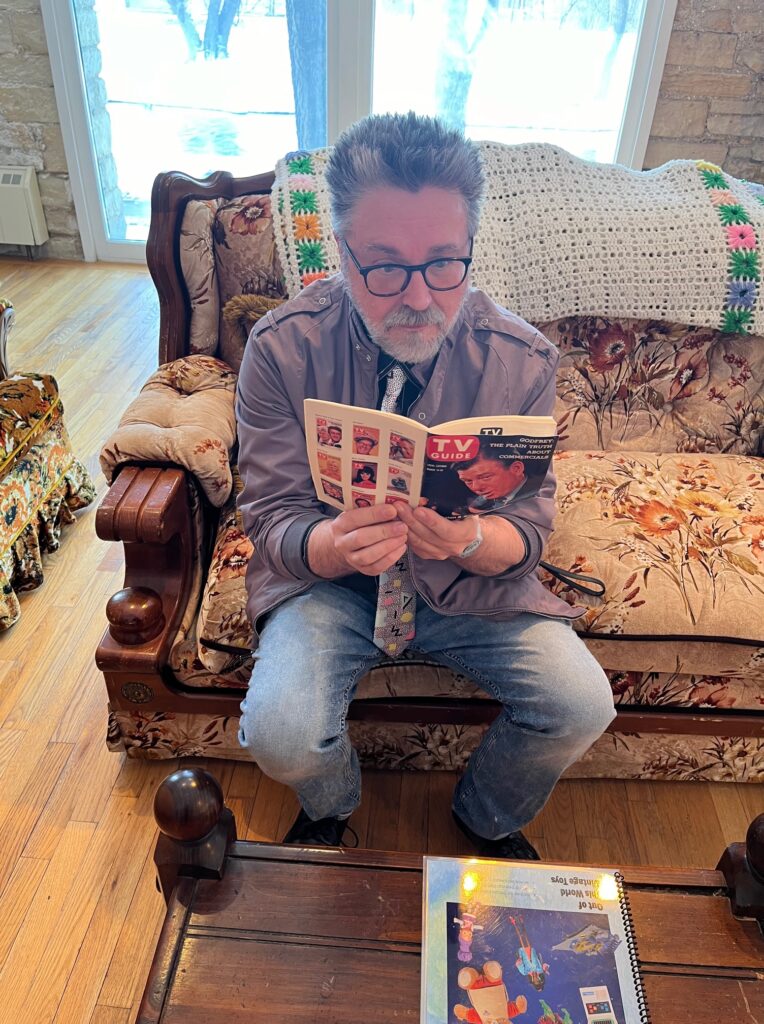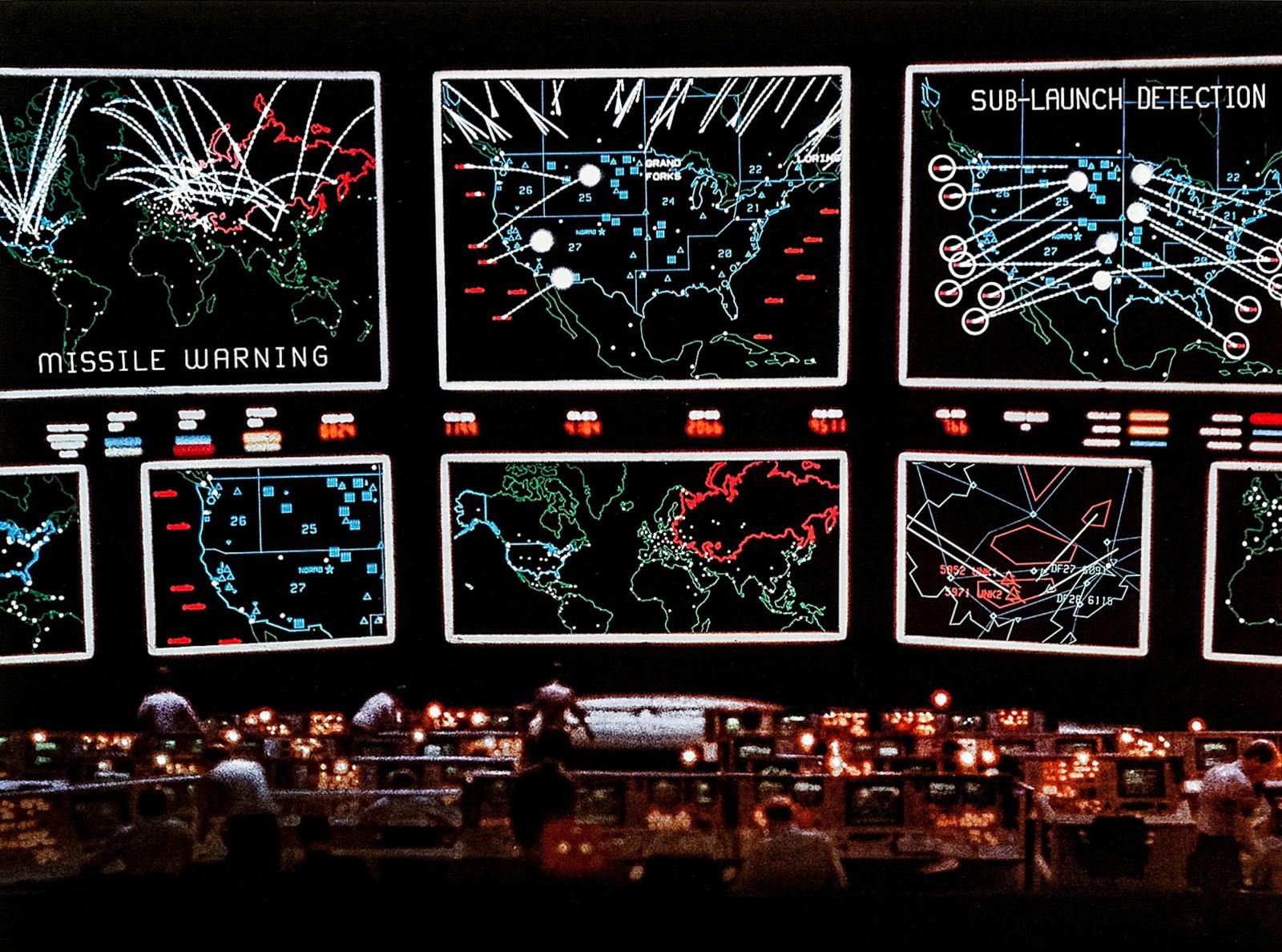Were we on the eve of destruction? Was it a land of confusion fueled by the politics of dancing? When two tribes go to war is the beat and the box office epic? Yes!
After a decade of detent thawing the cold war, the 80’s would begin with President Carter halting the SALT II nuclear weapons treaty and recalling the U.S. ambassador to Moscow back home. Trade and treaties with the USSR ended swiftly. Then Reagan was elected and he and Margaret Thatcher pumped up the volume of vilification. The Doomsday clock moved closer to midnight. We were so fucked.
The thaw was over, the curtain was up, and the question of WWIII and mutually assured destruction was not if, but when. The Cold War was back, baby! Like partygoers in Poe’s Masque of the Red Death, we danced in colorful fashion and made great music and movies. Were we reckless? Were we carefree and unaware of the danger? Or was it a collective trauma response to live life while using pop culture to express the existential dread in digestible bites enriched with a dash of hope? Or was it how we fought the Cold War?
I’m Only 17 Years Old, I’m Not Ready to Die Yet
Ally Sheedy said these words in a poignant scene in the 1983 movie “Wargames”.
I saw Wargames with my grandfather when it came out. I had only been living with my grandparents for a short time. They were my safe harbor away from an abusive home life and this was my first outing to something like this since I was 10.
It was not us against them, there was no gore, and no spies. You just had symbolic imagery of two teenagers trying to do teenager stuff and being swept into the reality of the end of everything. No one would listen to them stating the obvious. No one can win this and we are afraid of dying and we have barely started living. Their normal teenage behavior was seen as seditious or foolish and naive.
I wanted that normal teenage life. To maybe do something amazing on a computer, meet a girl, and all the other stuff Ally Sheedy and Matthew Broderick did. But all I knew was the fear and the dread that they felt about annihilation. I knew what it was for adults to rough me up and speak abusively to me as military people did to Broderick’s character in the movie. I knew the bits about not being listened to, dismissed, and the fear that all of existence was going to end.
After the movie we got into my grandfather’s station wagon. It was raining. He said, “Some movie, huh?” I was staring at the floor of the car. “Pat,” he continued. “What’s going on?”
“I don’t want to die? Are we all going to die in a war?”
He sighed for a moment. “I hope not. I want to tell you that they aren’t that crazy and that we’re not that crazy. But the scientist in the movie was right. The generals think they can win.”
“So what’s the point? What’s ever going to change?”
“You are. You’re the hope. Those computers were something else, weren’t they?”
“Yeah. I guess.”
“I know some guys into those things. They can talk to each other on them. Maybe someday you could talk to someone who is your age and lives in Russia and be friends. Being different together will change things.”
“What?”
“Well when you meet people who are different, you find out you’re the same even though you are different. And the different is the part you shouldn’t be afraid of. It’s what makes us better.”
A few weeks later was my birthday. I got a Commodore Vic 20 and a record player.
The computer was a slow burn to change me. The music was instant. And people my age who were different would play a significant part in ending the Cold War because of the music, the labels, and the different voices together.
Music That Gave Us Voice
Recently someone commented on the Gen X Watch Facebook page. They felt that musicians need to stay out of politics. I could not imagine embracing that ideology. Music, for me, is interactive.
While listening to the music you can sing along. You can dance to the rhythm, bang your head, or let it wash over you. And all of this and more can be done alone, with someone special, or in a group at a dance or a large arena.
When I asked the online community who their favorite Riot Grrrl musician or band was, someone pushed back against categories. But that, like the guy who says music should be apolitical, reduces not only artists, but the community that builds around a genre. The very core of the Riot Grrrl movement was a new generation of feminists fighting for their rights and equality. The women who recorded as self identified Riot Grrl musicians were giving a voice to that, mostly in punk. Do I have the right to dismiss them and say they should not have that category or that identity? Homogony threatens diversity.
Genres, Labels, and Change
Music was an important part of my identity. I found a tribe. And during the Cold War, the tribe that gathered at concerts and clubs instead of Cathedrals helped me cope and were more impactful to my heart than any church. I was a victim in my teens of religious indoctrination. And while they told me women were less, gays were bad, and commies were going to hell, the music that sprung from the cold war gave me hope and diversity. I was lost in two worlds. One that wanted homogeny and the other wanted diversity and to celebrate the differences.
Punk Rock and New Wave took an energy in the 80s. It was political and it was honest. Like Mister Rogers, Punk taught us that it was okay to be angry. New Wave tapped into Rogers telling us it was okay to be sad. Both showed us that it was okay to be ourselves together and there was also a time to be happy as well.
We could be all these complex things at once and it was healthy.
And within these genres there grew new labels and new music that represented those ideas.
How powerful were the labels and the genres?
Third wave feminism changed women’s lives. Queer people found safe spaces to come out when it was even more dangerous to do back then than it is today. And the political climate changed.
Music of my generation had a lot to do with the fall of the Berlin wall and the end of the Cold War.
Punk, Techno, New Wave, and strategic artists that included Bowie, the Boss, Depeche Mode and a few others were aware that music was changing things and spent time in West Belin knowing my Gen X peers in the East would hear it. They tore down walls.
In our labels and identities we did not try to homogenize, we sought the dangerous subversive power of diversity. And that ended a cold war.
We were not silent and we were not ready to die.
This was not about us vs them. This was about us together while being different.
Support Gen X Watch!

There are three ways you can do this:
1. Share this story with a friend and leave a comment.

2. Tip me! I do not have a contract with anyone in this work and for it to continue I need support.
3. Become a Members Only Patreon! In the Patreon I will have unfiltered rants, exclusive content, free PDF copies of the upcoming quarterly magazine, and more.
Thank you for your support and taking the time to read this.
Stay Totally Awesome! Stay true to you.

Leave a Reply